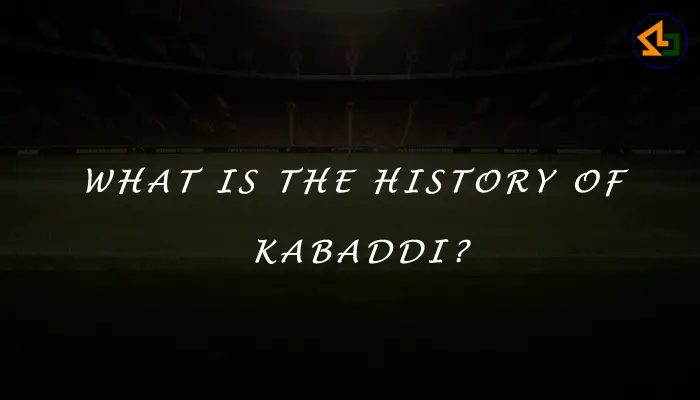Kabaddi, often hailed as one of the most enthralling and physically demanding sports, boasts a history that is as rich and dynamic as the game itself. In this comprehensive article, we will delve into the intriguing depths of Kabaddi’s past, tracing its origins, evolution, and cultural significance. From ancient rituals to modern competitions, this exploration promises to shed light on the history of Kabaddi in all its glory.
Ancient Origins: Where it all Began
What is the history of Kabaddi? Kabaddi’s roots can be traced back to ancient India, where it was not just a sport but a ritualistic practice. The term “Kabaddi” finds its origins in the Tamil word “kai-pidi,” which translates to “holding hands.” It’s worth noting that Kabaddi’s historical significance is not limited to India alone; variations of the game existed in different forms across various cultures.
The Early Evolution: From Rituals to Recreation
As the centuries passed, Kabaddi underwent a transformation from a mere ritual to a recreational sport. The game became popular in villages, serving as a form of entertainment and physical exercise. During this phase, rules began to emerge, and Kabaddi started to take on a more organized structure.
Kabaddi Across Cultures: International Influence
Kabaddi didn’t remain confined to the borders of India. It spread its wings to neighboring countries, gaining international acclaim. Countries like Bangladesh, Pakistan, and Iran embraced the sport, each adding its unique flavor to the game. The global recognition of Kabaddi marked a significant milestone in its history.
The Birth of Modern Kabaddi
In the mid-20th century, Kabaddi underwent a modernization process that transformed it into the sport we know today. This transformation was marked by the establishment of rules, regulations, and governing bodies. The first Kabaddi World Cup in 2004 was a testament to the sport’s global appeal and competitiveness.
Cultural Significance: Kabaddi in Festivals and Celebrations
Kabaddi is not merely a sport; it’s an integral part of many cultural festivals and celebrations in India. During events like the annual Pro Kabaddi League, the sport unites people from different backgrounds in a celebration of athleticism and teamwork. Such cultural significance underscores Kabaddi’s enduring relevance.
Frequently Asked Questions (FAQs)
Q: When was the first recorded game of Kabaddi played?
A: The first recorded game of Kabaddi dates back over four thousand years, making it one of the oldest sports in history.
Q: Is Kabaddi an Olympic sport?
A: As of now, Kabaddi is not part of the Olympic Games, but efforts are ongoing to include it in future editions.
Q: Are there different variations of Kabaddi?
A: Yes, there are various regional and international variations of Kabaddi, each with its own set of rules and gameplay styles.
Q: How is Kabaddi scored?
A: Kabaddi scoring is based on the successful “raids” made by the attacking team, which involves tagging as many defenders as possible while returning to their side of the court.
Q: Has Kabaddi always been a team sport?
A: No, Kabaddi has evolved from individual contests to a team sport with specified positions and strategies.
Q: What is the significance of “raids” in Kabaddi?
A: “Raids” are the heart of Kabaddi, where the raider attempts to touch defenders and return safely to their half, earning points for each successful tag.
Conclusion
The history of Kabaddi is a remarkable journey that spans millennia, encompassing rituals, recreation, international recognition, and cultural celebrations. From its humble origins in ancient India to its modern-day prominence, Kabaddi’s evolution reflects the enduring spirit of a sport that continues to captivate audiences worldwide. So, the next time you watch a thrilling Kabaddi match, remember the centuries of history that have shaped this exhilarating game.
That’s all! You can also checkout: What are the rules of kabaddi in a point? and What is your opinion about star sports Pro Kabaddi?







